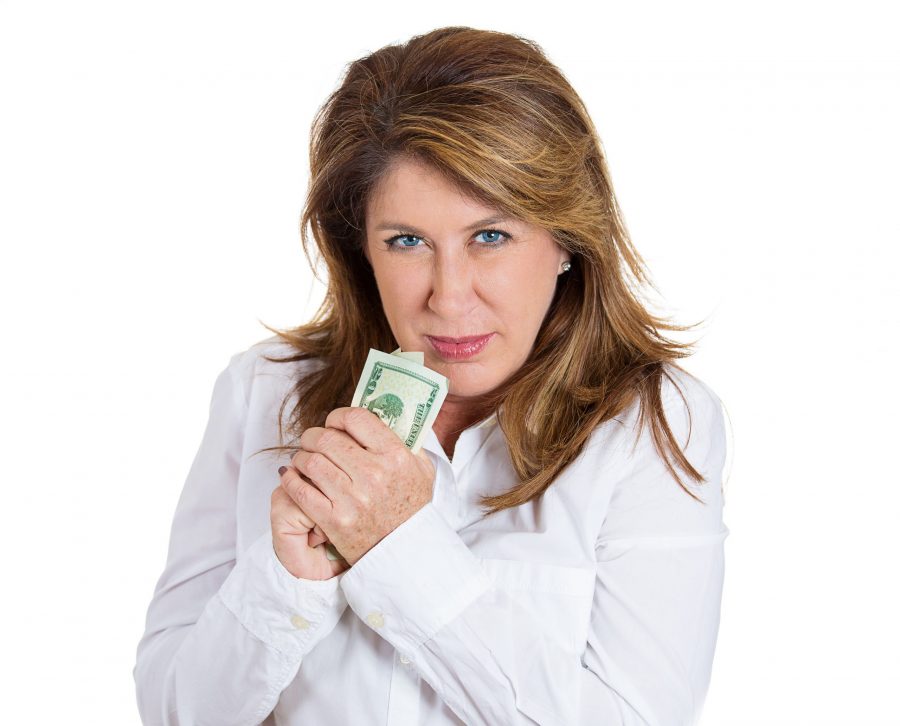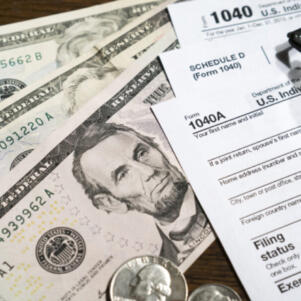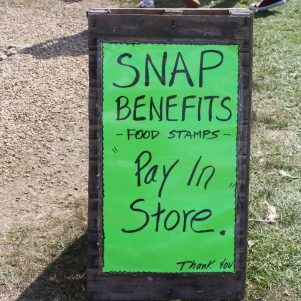On Taxes, A Tiny Fraction of Massachusetts Residents Give More Than They Have To — Even Though They Can
By Tom Joyce | July 22, 2020, 11:44 EDT

Tax day was three months later than usual in Massachusetts because of the coronavirus pandemic, but it represented a unique opportunity for Bay Staters.
People in Massachusetts had until July 15 to file their state and federal income tax returns. unless they requested an extension. In Massachusetts for calendar year 2019, that means paying a flat 5.05 percent state tax rate on taxable income, regardless of how much you make — unless you want to pay more.
But relatively few capitalize on the opportunity.
Since 2002, residents have had an option on Massachusetts state income tax forms to pay a 5.85 percent state income tax rate. It’s your choice: pay whatever the mandatory rate is, or pay the higher rate of 5.85 percent.
The higher option came about two years after Massachusetts residents voted to lower the state income tax rate in 2000 from 5.85 percent to 5 percent, where it had been in the 1980s before a budget crisis near the end of then-governor Michael Dukakis’s final term led state legislators to increase it.
For the 2000 ballot question, about 59 percent (1,541,771) of voters in Massachusetts voted in favor of the tax cut while 41 percent (1,055,181) voted against it.
The 5 percent state income tax rate was supposed to take effect in 2003. But the state Legislature instead replaced the ballot question measure with a statute that called for a slow, gradual decrease to 5 percent — so gradual that the tax rate reached its destination January 1, 2020, 17 years later.
Supporters of lower taxes weren’t happy with the end-around of the ballot question. Legislative leaders of the time ignored them.
Supporters of higher taxes weren’t happy with the decrease in tax rates. State legislators created a means to accommodate them.
The idea came from Chip Ford, who proposed in December 2000 a way to let people who support higher taxes pay more to the state. Ford, who at the time was the director of operations of Citizens for Limited Taxation, suggested offering taxpayers on their income tax return each year two rates: the old higher rate of 5.85 percent, and the new lower rate, whatever it might be in a particular year.
In 2001, the House minority leader of the time, Fran Marini (R-Hanson), proposed the two-option system as an amendment to the state budget. The state House of Representatives adopted it on May 10, 2002, according to State House News Service.
So if a million people voted against the tax cut in 2000, how many people still pay the old higher tax rate?
In relative terms: Not a lot.
The Massachusetts Department of Revenue provided New Boston Post with data on that point. For tax year 2015, it was 1,663 out of 3,783,209 filers; in 2016, it was 1,619 out of 3,642,896 filers; and in 2017, it was 1,275 out of 3,175,892 filers. That means between 0.040 and 0.044 percent of those filing state income tax returns in the state during those three years chose to pay more than required. That’s less than five people out of every 10,000.
In those years, the state got $285,730, $288,013, and $279,418 in additional revenue, respectively, because of Marini’s amendment.
Ford, who is now the executive director of Citizens for Limited Taxation, says the muted response to the higher-tax-rate option is telling.
“On the 2000 ballot, 41 percent of voters insisted that they ‘didn’t need or want’ tax relief by campaigning and voting against our ballot question to roll back the Dukakis-era 1989 ‘18-month, temporary’ income tax hike,” Ford told New Boston Post in an email message. “In the best of worlds, they shouldn’t be forced to take it.
“CLT quickly came up with its voluntary tax check-off on income tax returns, a perfect resolution for all,” he added. “Since becoming law in 2002 it has provided those defeated and wanting to be taxed more with a second chance to win with honor if they choose to take it. What could be more fair and equitable? CLT’s goal when drafting our bill in 2000 was to make everyone a winner, and yeah, maybe tweak them a little. The results since have surely exposed their hypocrisy.”
Even pro-spending politicians have passed on the opportunity to pay more in state income taxes. Up until 2017, Massachusetts U.S. Senator Elizabeth Warren was among those who did not pay the higher rate, although she started paying the higher rate around the time she was running for re-election. Jesse Mermell, a Brookline Democrat running for the U.S. House of Representatives in Massachusetts’s Fourth Congressional District, has not paid the higher rate, an analysis by New Boston Post shows.
Paul Craney of the Massachusetts Fiscal Alliance, a right-of-center tax-and-spending watchdog, says the lack of people choosing to pay more in income taxes should tell us something: people don’t like paying taxes.
“Despite the heated rhetoric, what this shows you is that taxpayers really prefer lower taxes, when given the option,” Craney told New Boston Post by email. “Massachusetts taxpayers are already among the most generous in the country.”
Kurt Wise, a senior policy analyst at the left-leaning Massachusetts Budget and Policy Center, offers a different perspective.
He says that it’s not surprising that relatively few opt to pay the higher tax rate, and that it’s not hypocritical for supporters of higher tax rates to pass on paying more voluntarily.
“Partly that’s just human nature, but it’s also an accurate assessment of who should be paying more taxes to fund these investments,” Wise wrote, including a link to an article. “People see how our lopsided economy delivers most of the benefits to a wealthy few and to large corporations – and that’s been true for decades now. Most people have been treading water, income-wise, since the 1980s. People also intuitively understand that these same lucky few are not paying their fair share in taxes, either federally or at the state and local level.”
Wise said that people’s experiences give them an understanding of the tax system, and that people in Massachusetts want progressive taxation.
“Expecting legislators to support the public investments we need, while also expecting that these investments be paid for by high-income households and profitable corporations is not a contradiction,” Wise said. “It’s actually exactly the policy prescription we need if we want to build toward an equitable, racially just, and prosperous Commonwealth.”
Ford disagrees, suggesting by email that many people who call for tax-and-spend policies “strongly support more, more, always more spending on them – so long as somebody else is paying for it … expecting others to pay for their wants and wish lists …”
The state’s flat income tax is fairer than a tiered system, Ford said.
“Under Massachusetts’s flat tax every income is taxed at the same rate, so everyone is paying the same percentage of their income to the state,” Ford said. “The wealthy pay a lot more dollars than do middle and lower-income earners; the wealthy pay much more in taxes than do the lower-income employed. What could be more fair?”
As for the higher-option tax checkoff, Ford sees it as a win-win for people who disagree about tax policy, saying it accommodates the losing side in the 2000 tax cut referendum.
“Those who opposed our income tax rollback ballot question in 2000 insisted they ‘didn’t need or want’ it,” Ford wrote. “Now they aren’t forced to take it. We generously provided them with what they declared they wanted. Now they can feel like winners too.”
Ford’s idea for the voluntary tax check-off has its roots in an earlier campaign on a different issue.
In 1986, Ford ran an organization called Freedom First, which helped repeal the mandatory seat belt law the state Legislature passed in October 1985. He then proposed providing discounts on insurance premiums for those who wore seat belts, a measure then-state representative William Reinstein (D-Revere) sponsored. Ford called the idea “The Buckle-Up Bonus.” It did not pass, but it gave him another idea years later.
“The ‘carrot and the stick’ Buckle-Up Bonus Bill flashed into my mind after we won the tax rollback ballot question campaign,” Ford told New Boston Post in an email message. “The voluntary tax check-off was born!”









